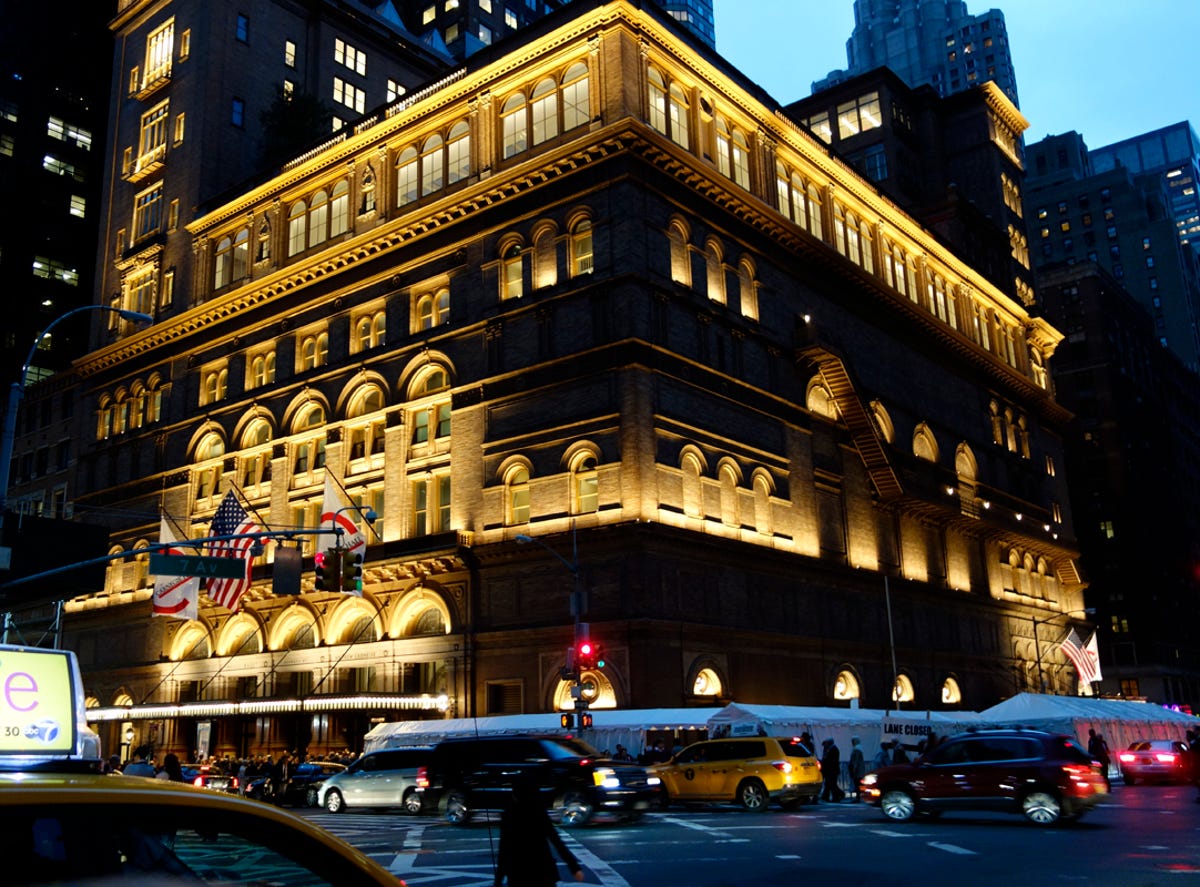
Steve Guttenberg/CNET
When it comes down to live versus recorded music, I’m definitely in the recorded camp. I’ve been to too many utterly forgettable concerts by my favorite artists. Great musicianship and performances are rare; in the studio you don’t have to sing in tune or play in time. Recorded music is massively edited, tweaked and perfected in various ways; the band may have never actually played the whole tune together from beginning to end in the studio.
Too often, very little of the original performances make it to the finished recording. Of course, a lot depends on the musicians and genre — rock, world music, rap, and electronica for sure are all fabricated in post-production. Then again, classical music recordings, where note-perfect renditions are de rigueur, are heavily edited as well. There’s more wiggle room in jazz, but all music nowadays is at least edited, so the best bits from many takes are seamlessly strung together to make the best possible take — the one the band couldn’t actually play.
An analogy can be made comparing theater and films, and I much prefer movies to theater. Actors on stage perform the entire piece from beginning to end, night after night; film actors do scenes over and over again that might run just a few seconds or sometimes just a minute or so. Films are almost always shot out of sequence, and only come together in the editing room, long after the actors have gone on to other projects.
Drummer/producer Steve Jordan once told me, “I like to hear a performance on a track, and when you have that coupled with analog tape, the music can affect you physically, and you have something. With digital there are a lot of elements involved, and when you’re spending too much time ‘perfecting’ the music, you’re probably going to lose the feel. Human beings’ heart rates aren’t steady, they go up and down, but that’s exactly what’s being extracted from a lot of today’s music. When you hear people playing together you know it, but that’s not happening much anymore.” Go back to recordings from 30 or 40 years ago, and you’re much more likely to hear a lot less production. Too much tweaking can make for soulless, boring music.
Unless you’re a musician or you hang out with them, you rarely hear the real, true sound of instruments. We’ve lost our ability to know what “real” music really sounds like. Even with live music, it’s almost always compressed, processed and heard through speakers. An awful lot of music is more a product of technicians and engineers than musicians and instrument craftspeople.
Today’s live performances can be “augmented” with samples and pitch-corrected Auto Tuned vocals. The rhythm section might have a “click track” in their in-ear monitors to help them stay at the right tempo. Still, you hear a complete, beginning-to-end performance at a concert. That won’t make it great, but there is at lease some connection between the band and the audience. Even so, looking back I’ve gotten a lot more pleasure from recorded than live music; it’s not even close.
When I put the question “how is recorded music better than live?” to my Facebook friends they said things like, “Never heard a live concert on an airplane,” “It {recorded music) doesn’t have to include annoying people sitting in front, behind and beside me,” and “A lot of rock music today is way too loud at live venues, so I’d say having a volume control is a bonus.” And my favorite comment, “I have been to live events where the listening position and acoustics were such that I might as well have been sitting in a bathroom stall or an iceberg somewhere off the coast of Greenland.”
At their best, albums and songs are works of art; and concerts have great performances. Too bad concerts by major bands are really expensive, but you can usually hear the band’s recordings for free on the Internet. It’s no wonder we relate to live and recorded music in very different ways. Oh, and the one other huge advantage of recorded music is that it lets us hear bands and musicians that are no longer with us.
What do you think? Is recorded music better than live music?




